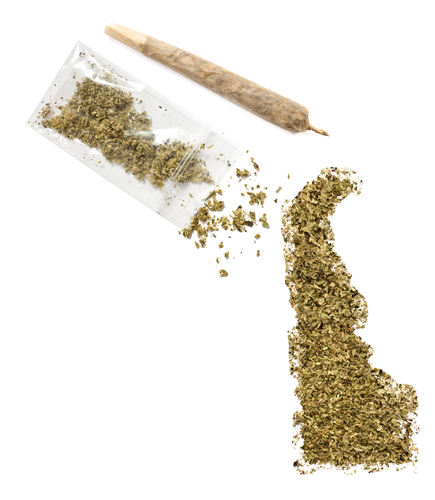Delaware Gov. John Carney vetoed legislation that would remove all penalties for possession of one ounce or less of marijuana by a person 21 years of age or older.

“Pursuant to Article III, Section 18 of the Delaware Constitution, I am vetoing House Bill No. 371 by returning it with my objections to the Delaware House of Representatives without my signature,” Carney told the Delaware House of Representatives. “House Bill No. 371 would, among other things, remove all penalties for possession by a person 21 years of age or older of one ounce or less of marijuana and ensure that there are no criminal or civil penalties for transfers without remuneration of one ounce or less of marijuana between persons who are 21 years of age or older.”
Carney said he supports the medical marijuana industry in Delaware and agrees that individuals should not be imprisoned solely for the possession and private use of a small amount of marijuana.
“That said, I do not believe that promoting or expanding the use of recreational marijuana is in the best interests of the state of Delaware, especially our young people. Questions about the long-term health and economic impacts of recreational marijuana use, as well as serious law enforcement concerns, remain unresolved,” Carney said. “I respect the Legislative Branch’s role in this process, and I understand that some hold a different view on this issue. However, I have been clear about my position since before I took office, and I have articulated my concerns many times.”
The Marijuana Policy Project (MPP) was disappointed in Carney’s veto.
“It is a true injustice that Gov. Carney has chosen to veto HB 371. This important legislation would dramatically reduce the number of police interactions, searches, and citations for cannabis possession in Delaware. We know cannabis laws are unequally enforced, and it is Black Delawareans who are disproportionately stopped, searched, and penalized for cannabis or for the supposed smell of cannabis. After condemning the traumatic search of the DSU women’s lacrosse team in Georgia, Gov. Carney has failed to stand for justice for the same types of intrusive searches at home in Delaware by vetoing HB 371,” Olivia Naugle, MPP’s senior policy analyst, said.
MPP officials cited a survey that said 71 percent of Delaware voters support legalization.
“We are deeply disappointed by the governor’s unwillingness to hear voters’ demands on this issue. A strong majority of Delaware voters support cannabis legalization and want to see the state stop wasting resources on punishing individuals for activities that are legal in 18 other states. We call on the legislature to take immediate action to override this veto,” Zoë Patchell, executive director, Delaware Cannabis Advocacy Network, said.
HB 371 passed in the House by a vote of 26-14 and in the Senate by a vote of 13-7. To override a veto, 25 votes are required in the House, and 13 are required in the Senate. Delaware legislators have until June 30 to override the governor’s veto.
MPP officials said HB 371 would not legalize or set up a regulatory framework for adult-use cannabis sales. Those details are addressed in separate legislation, HB 372.
Delaware could realize more than $40 million in annual tax revenue from the regulation and taxation of legal cannabis. To date, 18 states and Washington, D.C. have legalized cannabis for adults 21 and older.